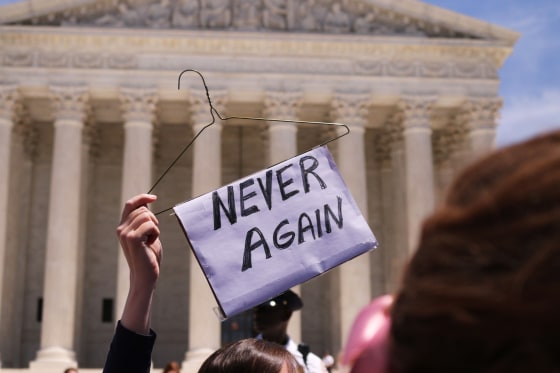Congressional Democrats reintroduced legislation on Tuesday that would protect abortion access around the country, even if Roe v. Wade were weakened or overturned.
The Women’s Health Protection Act, if passed, would guarantee the right for health care professionals to provide abortion care and their patients to receive care, without restrictions and bans that impede access.
Specifically, it would prohibit state and federal lawmakers from imposing several limits on abortion care, including mandatory ultrasounds, waiting periods, admitting privileges requirements, and limits on medication abortion.
The bill was first introduced in 2013 and has been reintroduced in every congressional session since. However, it has never received a vote in either chamber.
The bill is led by Sens. Richard Blumenthal of Connecticut and Tammy Baldwin of Wisconsin, along with Reps. Judy Chu, D-Calif., Lois Frankel, D-Fla., Ayanna Pressley D-Mass., and Veronica Escobar D-Texas.
The renewed effort comes in the wake of the U.S. Supreme Court’s decision last month to take up Mississippi’s controversial ban on most abortions after 15 weeks of pregnancy along with a rise in anti-abortion legislation being enacted in various states.
“With the Supreme Court set to consider a direct attack on Roe and as emboldened and extremist lawmakers viciously attack women’s reproductive rights in statehouses across the nation, the Women’s Health Protection Act has never been more urgent or more necessary,” Blumenthal said. “These demagogic and draconian laws hurt women and families as they make personal and difficult medical decisions."
Since Roe v. Wade was decided by the Supreme Court in 1973, states have enacted over 1,300 abortion restrictions, according to the Guttmacher Institute, an abortion-rights research organization. So far this year, the organization recorded over 550 abortion restrictions have been introduced in 47 states, and over 80 restrictions have been enacted in 16 states.
“We cannot wait any longer. If Roe falls, many states will immediately take action to make abortion a crime," said Nancy Northup, President and CEO of the Center for Reproductive Rights. "Even now, with constitutional protections in place, state legislators have made it impossible to access abortion in the South and Midwest."
At least 10 states, including Arkansas, Kentucky, and Louisiana, have so-called trigger laws in place, which would ban abortion if the Supreme Court overturned Roe v. Wade.
Anti-abortion rights groups, meanwhile, lambasted the bill, calling it “radical.”
“This egregious, deceptively named bill is the latest example of Washington Democrats’ extreme abortion agenda,” said Marjorie Dannenfelser, president of Susan B. Anthony List, an anti-abortion rights group.

